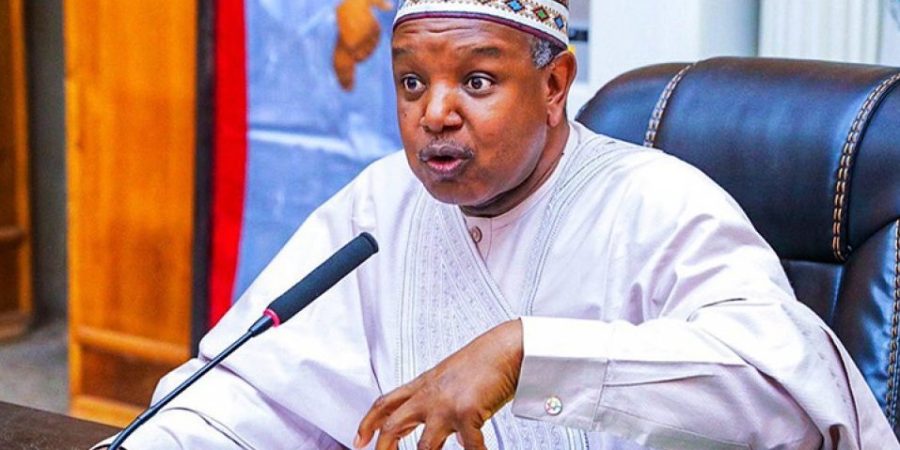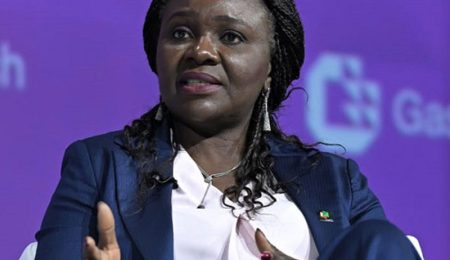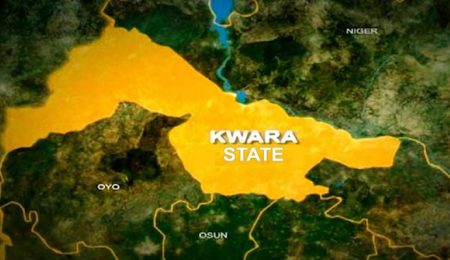The Minister of Budget and Economic Planning, Abubakar Bagudu, on Wednesday noted that the aspiration of the current administration led by President Bola Tinubu is to ensure value-addition to the country’s God-given resources, explaining that the ambition of Nigeria is to see that all the crude oil produced in-country is refined locally.
He explained that although two years ago Nigeria had one of the most distorted pricing of refined petroleum products, the reforms undertaken by Tinubu have helped to stop all the distortions.
He spoke on the closing day of the Global Commodity Insights Conference on West African Refined Fuel Market, organised by the Nigerian Midstream and Downstream Petroleum Regulatory Authority (NMDPRA) in partnership with S&P Global.
The meeting was called to kickstart processes to, among others, develop a regional pricing benchmark for refined petroleum products in West Africa, an initiative which aims to create a localised index for products such as petrol, diesel, aviation fuel and liquefied petroleum gas.
For decades, Bagudu stressed that there was severe under-investment in the Nigerian oil and gas sector, compared to its peers, noting that with the current reforms embarked by the current administration, Nigeria was on its way out of the woods.
“Our extension of multilateral cooperation and sustained support of the government have created an enabling environment that is attractive for investment in our industry,” he stated, pledging his ministry’s collaboration with all stakeholders in achieving the strategic objectives of the West African refined fuel objectives.
“We can do much more. Our ambition in Nigeria is to generate double-digit growth. Our ambition in Nigeria is to refine all that is produced in Nigeria and even for some West African countries,” he stressed.
Also speaking, the Authority Chief Executive, NMDPRA, Farouk Ahmed, praised Tinubu for his support for the Authority, disclosing that the president has never interfered in the regulatory activities of the agency.
“The president has never objected to the right things that we are doing. But he has given us a free hand to be independent regulators. That’s where we derive our confidence from, to insist on doing the right thing.
“And that’s why we are courageous in what we do because we believe whatever we do is for the best interest of Nigerians. I also have in-house support from my executive directors,” he stated.
As a regulator, Ahmed said the pushback by some industry players over some of NMDPRA’s regulations was understandable, noting that while some rules need explaining, some of the operators feared the unknown.
“So, please, I call upon all our stakeholders to bear with us and follow the rules, the regulations, the policies, which are all in line with the provisions of the law. By doing so, Nigeria, West Africa, and Africa, if we collaboratively obey our rules and regulations, will move forward, just like any other advanced countries,” Ahmed said.
Also on Wednesday, West African nations agreed to impose stiff penalties on persons and corporate organisations licensed to float petroleum refineries, but have failed to adhere to the terms of their agreement with their respective countries.
Speaking at the event, the Executive Director, Economic Regulation and Strategic Planning at the NMDPRA, Prof. Zainab Gobir, highlighted the need to make West Africa a petroleum products trading hub, noting that this is contingent upon coordination across maintaining refining capacity and supply capabilities, logistic networks and operational excellence, regulatory alignment and adoption of a harmonised, transparent and robust refined product market pricing.
While West African refineries, especially the Dangote refinery continue to change the dynamics of refining product markets in the region, she explained that to ensure a thriving West Africa product pricing and trading market, there was a need for operational stability of refineries.
With growing regional market demand, Gobir, while summarising key points during the conference, stated that participants made cross-country agreements and cross-border agreements.
“So what are the objectives of how we’re going to achieve this? We secure a stable supply of products locally refined in West Africa to help meet the growing demands in the region, because we clearly established on Wednesday that the demand is there.
“How do we go about doing this? We have a responsibility matrix that has the action that must be taken and the timelines. The first one is to ensure all operational refineries steadily operate at optimal output to fulfill West Africa’s demand for refined products. All member states are expected to abide by this. And what is our timeline? Short to medium term.
“Secondly, (we agreed) on a harmonised regional market framework, regulatory policy, and incentives that will attract investment in greenfield refinery products. What is the action base? Regional regulatory bodies working closely together. The timeline is fourth quarter 2025, meaning we have a regulatory agreement together.
“(We agreed) to ensure all performing licensed refineries deliver and commit to obligations. They are licensed to construct or (we will) impose steep penalties for non-performance in all countries of the West African sub-region.
“Who is to do this? Operating refinery member states. And that’s expected monthly. So, we’ll track the production levels and what the outputs are every month and have a report. We will protect domestic refineries from unfair international competition and destruction of structures and systems that promote the same. Timeline is immediate to short term,” Gobir added.
According to her, financial institutions in the region including government, financial institutions, African Finance Corporation (AFC), Afrexim Bank and the African Energy Bank (AEB) and private investors will be encouraged to create the structure, innovation and financial instrument to finance infrastructural gaps.
Emmanuel Addeh
Follow us on:



